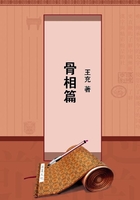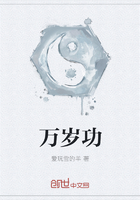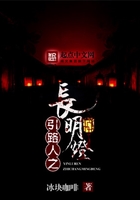THE RECTOR AT WORK
It was now the beginning of October, and Nature was growing dull and sad. Monsieur Bonnet, perceiving in Veronique from the moment of her arrival at Montegnac the existence of an inward wound, thought it wisest to wait for the voluntary and complete confidence of a woman who would sooner or later become his penitent.
One evening Madame Graslin looked at the rector with eyes almost glazed with that fatal indecision often observable in persons who are cherishing the thought of death. From that moment Monsieur Bonnet hesitated no longer; he set before him the duty of arresting the progress of this cruel moral malady.
At first there was a brief struggle of empty words between the priest and Veronique, in which they both sought to veil their real thoughts.
In spite of the cold, Veronique was sitting on the granite bench holding Francis on her knee. Madame Sauviat was standing at the corner of the terrace, purposely so placed as to hide the cemetery. Aline was waiting to take the child away.
"I had supposed, madame," said the rector, who was now paying his seventh visit, "that you were only melancholy; but I see," sinking his voice to a whisper, "that your soul is in despair. That feeling is neither Christian nor Catholic."
"But," she replied, looking to heaven with piercing eyes and letting a bitter smile flicker on her lips, "what other feeling does the Church leave to a lost soul unless it be despair?"
As he heard these words the rector realized the vast extent of the ravages in her soul.
"Ah!" he said, "you are making this terrace your hell, when it ought to be your Calvary from which to rise to heaven."
"I have no pride left to place me on such a pedestal," she answered, in a tone which revealed the self-contempt that lay within her.
Here the priest, by one of those inspirations which are both natural and frequent in noble souls, the man of God lifted the child in his arms and kissed its forehead, saying, in a fatherly voice, "Poor little one!" Then he gave it himself to the nurse, who carried it away.
Madame Sauviat looked at her daughter, and saw the efficacy of the rector's words; for Veronique's eyes, long dry, were moist with tears.
The old woman made a sign to the priest and disappeared.
"Let us walk," said the rector to Veronique leading her along the terrace to the other end, from which Les Tascherons could be seen.
"You belong to me; I must render account to God for your sick soul."
"Give me time to recover from my depression," she said to him.
"Your depression comes from injurious meditation," he replied, quickly.
"Yes," she said, with the simplicity of a grief which has reached the point of making no attempt at concealment.
"I see plainly that you have fallen into the gulf of apathy," he cried. "If there is a degree of physical suffering at which all sense of modesty expires, there is also a degree of moral suffering in which all vigor of soul is lost; I know that."
She was surprised to hear that subtle observation and to find such tender pity from this village rector; but, as we have seen already, the exquisite delicacy which no passion had ever touched gave him the true maternal spirit for his flock. This /mens devinior/, this apostolic tenderness, places the priest above all other men and makes him, in a sense, divine. Madame Graslin had not as yet had enough experience of Monsieur Bonnet to know this beauty hidden in his soul like a spring, from which flowed grace and purity and true life.
"Ah! monsieur," she cried, giving herself wholly up to him by a gesture, a look, such as the dying give.
"I understand you," he said. "What is to be done? What will you become?"
They walked in silence the whole length of the balustrade, facing toward the plain. The solemn moment seemed propitious to the bearer of good tidings, the gospel messenger, and he took it.
"Suppose yourself now in the presence of God," he said, in a low voice, mysteriously; "what would you say to Him?"
Madame Graslin stopped as though struck by a thunderbolt; she shuddered; then she said simply, in tones that brought tears to the rector's eyes:--"I should say, as Jesus Christ said: 'Father, why hast thou forsaken me?'"
"Ah! Magdalen, that is the saying I expected of you," cried Monsieur Bonnet, who could not help admiring her. "You see you are forced to appeal to God's justice; you invoke it! Listen to me, madame. Religion is, by anticipation, divine justice. The Church claims for herself the right to judge the actions of the soul. Human justice is a feeble image of divine justice; it is but a pale imitation of it applied to the needs of society."
"What do you mean by that?"
"You are not the judge of your own case, you are dependent upon God," said the priest; "you have neither the right to condemn yourself nor the right to absolve yourself. God, my child, is a great reverser of judgments."
"Ah!" she exclaimed.
"He /sees/ the origin of things, where we see only the things themselves."
Veronique stopped again, struck by these ideas, that were new to her.
"To you," said the brave priest, "to you whose soul is a great one, I owe other words than those I ought to give to my humble parishioners.
You, whose mind and spirit are so cultivated, you can rise to the sense divine of the Catholic religion, expressed by images and words to the poor and childlike. Listen to me attentively, for what I am about to say concerns you; no matter how extensive is the point of view at which I place myself for a moment, the case is yours. /Law/, invented to protect society, is based on equality. Society, which is nothing but an assemblage of acts, is based on inequality. There is therefore lack of harmony between act and law. Ought society to march on favored or repressed by law? In other words, ought law to be in opposition to the interior social movement for the maintenance of society, or should it be based on that movement in order to guide it?















